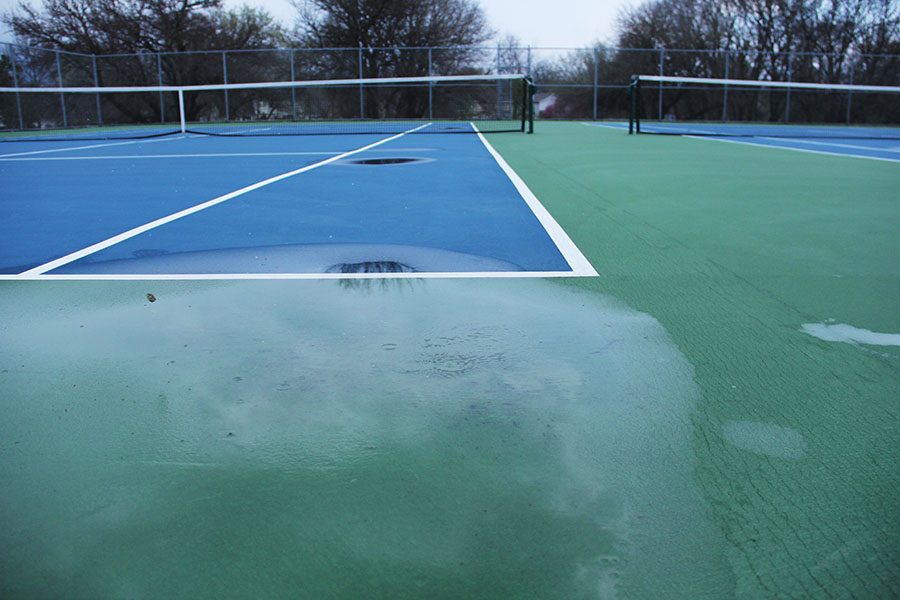Ever-changing spring climate affects practices, games
Rain on the tennis court.
April 18, 2017
With spring come thunderstorms and a mix of cold and heat. So, spring sports coaches and athletes must cope with cancellations, rescheduled games and ways to still practice despite the weather.
Depending on the sport, the coaches will decide whether it’s best to cancel practice or to go inside and work out.
Angel Cornejo, head soccer coach, said, “When there is bad weather during practice, we will meet in my room. We start with a team-building activity and then we will analyze film from the previous soccer game that we played.”
Tennis will cancel practice and games when it is below 40 degrees or the courts are too wet to play on. The tennis players will typically run through the hallways for a cardio workout and then watch a tennis instructional video.
Baseball will have games or practice cancelled when there is standing water in the outfield which makes the field unplayable. Softball and track play on artificial turf, so they do not have this issue when it comes to standing water.
Track and field hardly ever cancel practice due to weather because they are able to practice inside and lift weights or outside, depending on the situation and the weather. When it comes to meets and cancellations for track and field, they will decide to cancel based on how long the delay from the weather will be and how important the meet is.
If any soccer game or outdoor game is stopped by weather, they must wait 30 minutes from the time of last lightning strike and stay in a shelter such as a locker room or bathroom. Time (30 minutes) resets every time another new lightning strike occurs.
Extreme heat can also be dangerous for athletes when they are practicing outside because it can lead to dehydration or heat exhaustion.
Jon Renberger, head tennis coach, said, “When there is extreme heat, players are encouraged to have water with them on the court, and the frequency of breaks are increased to help recover between drills.”
The schools will try to reschedule every game; however, they do give priority to the varsity level and important games or meets.
When it comes to the challenge of rescheduling games with other schools, Matthew Johnson, athletic director, said, “It is always a challenge, but we all work together and get it done and be fair. We may be rivals on the field, but we all are in the Olathe family and have a great working relationship to what is best for all the teams involved.”

